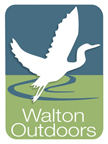 Be aware of changes to quota system, gator permits and applications
Be aware of changes to quota system, gator permits and applications
Most hunters know you have the best chance of catching that monster buck off guard during the beginning of hunting season. That’s why many of us enjoy hunting the archery and muzzleloading gun seasons – and why we can’t miss opening weekend of the general gun season. After that, a whole lotta gunfire breaks out, and those big boys start getting nocturnal, making hunting ’em a lot more difficult.
If you plan to hunt on public land next season, you’ve probably heard that the Florida Fish and Wildlife Conservation Commission (FWC) made some changes to its quota permit system, so I want to take this opportunity to make you aware of some of them.
 Phase I of the application process for most hunt types has been extended this year from a 10-day period to a month, and takes place June 1-30. During this period, just like before, you may turn in only one worksheet for each type of quota hunt. One thing to remember though: Unless exempt, you must have an up-to-date management area permit when applying for a quota permit, or the system won’t accept your application.
Phase I of the application process for most hunt types has been extended this year from a 10-day period to a month, and takes place June 1-30. During this period, just like before, you may turn in only one worksheet for each type of quota hunt. One thing to remember though: Unless exempt, you must have an up-to-date management area permit when applying for a quota permit, or the system won’t accept your application.
Another change this year is the old archery/muzzleloading gun worksheet has been broken out into two separate worksheets – one for archery hunts and the other for muzzleloader hunts. In addition, there is a new wild hog worksheet, as well as the familiar general gun worksheet. So you now have the opportunity to receive four permits (archery, muzzleloading gun, wild hog and general gun), instead of just two.
All quota permit worksheets are available by going to MyFWC.com/Hunting and clicking on the link under “Limited Entry Hunts,” or to a tax collector’s office or license agent. Just like last year, you may fill in your application worksheet with up to five hunt choices. During phases I and II, you may be drawn for no more than one quota permit per hunt type. During Phase III, you can submit additional worksheets and receive up to five quota permits per hunt type.
Once you’ve completed the worksheet, you may submit it to any license agent or tax collector’s office. If you have a valid Florida driver’s license, you can submit a worksheet online at www.wildlifelicense.com/fl.
The random drawings to decide who gets these coveted quota hunt permits take place July 7-17. You can find out if you’ve been drawn by going to MyFWC.com/Hunting.
If you’ve been drawn, you’ll receive your quota permit in the mail, just like before. If not, you’ll get a preference point for next year’s drawing, which will better your chances of being selected. If you’re unable to use your quota permit, you can mail it back to Tallahassee, so it can be reissued to someone else during Phase III. If it was issued in Phase I and it’s postmarked prior to the first day of the hunt, you’ll receive a preference point. Accumulated preference points under the old system are being applied to the new system.
Except for the Blackwater Wildlife Management Area dog hunts and Holton Creek WMA mobility-impaired hunts, all quota permits are now nontransferable. That means only the person whose name appears on the permit can use it. This new change will make the whole quota system fairer and spread these great hunting opportunities out to a lot more folks. If you’ve given up on applying for quota hunts because you never drew the area you wanted, I urge you to try it this year.
There’s also a new guest permit this year, which is part of the quota changes. To me and many other folks, it’s always a lot more fun to go hunting with a buddy, so the FWC created a way for people to bring a friend on a quota hunt.
For every quota permit (excluding Blackwater WMA dog hunts and Holton Creek WMA mobility-impaired hunts), one nontransferable guest permit may be obtained until the last day of the hunt at tax collectors’ offices or license agents using the quota permit holder’s customer ID number and hunt number. To take advantage of this, the guest must have a valid management area permit (unless exempt) as well as all other necessary permits and license needed for the specific hunt.
Some stipulations though: Both permit holder and guest must enter and exit the WMA together, share the same vehicle and share a single person’s bag limit. The guest may hunt only when the quota permit holder is present on the area. On WMAs that have zone tags, the permit holder and guest must hunt in the same zone.
On 37 of the WMAs, there’s a bag limit of only one deer, and in these cases, when you take a guest, I would suggest doing what a lot of us hunters are doing already, and that’s setting your cell phone to vibrate mode and texting your buddy when you shoot a deer. That way, he will know your bag limit is filled. In remote places, where you don’t have a signal, you could use those inexpensive two-way radios to let each other know if you get one.
Switching gears a bit, have you ever wondered how cool it would be to fight and bring into the boat a 10-foot gator? Since 1988, the FWC has offered hunters the opportunity to take part in its annual recreational statewide alligator harvest. These special night hunts provide a thrilling, hands-on hunting adventure unlike any other you could imagine.
Just like before, alligator season spans about 11 weeks, from Aug. 15 through Nov. 1, but there are some new changes this year regarding how to apply for the more than 6,000 permits that will be available.
This year during Phase I, the alligator permits are going to be issued by random drawing, as are the quota permits mentioned above. The Phase I application period is June 1-15, and applicants will be limited to drawing only one permit at this time. You may submit a no-cost application at any tax collector’s office, license agent or through the Internet at www.wildlifelicense.com/fl.
The reason the FWC decided to move away from issuing permits on a first-come, first-served basis in Phase I is because during the past several years the vendor the FWC contracts with wasn’t able to handle the high volume of applications submitted when the permits first go on sale. The vendor’s system crashed, causing frustration with some folks who experienced trouble obtaining a permit.
After the random drawing, the remaining permits will be sold on a first-come, first-served basis during Phase II, beginning at 10 a.m. July 1 and running through July 6. Those who drew a permit in Phase I and paid for it cannot apply during this period.
Any permits remaining after July 6 will be issued during Phase III on a first-come, first-served basis beginning at 10 a.m. July 7 until all are purchased. Anyone can apply during this time – even if that person already bought a permit in Phase I or II.
The cost for your first alligator trapping license and two hide validation tags is $272 for Florida residents and $1,022 for nonresidents. If you happen to buy an additional permit during Phase III, it will only cost you $62, regardless of whether you’re a resident or not. No other hunting license or permits are required to go gator huntin’.
Each permit allows you to take two alligators from whichever county or body of water you were awarded during a specific harvest period. You must be at least 18 years old by opening day, Aug. 15, to purchase one.
If you don’t have all the gear necessary and you’d rather assist a friend who’s a licensed trapper, you can pay just $52 for an alligator trapping “agent” license. You don’t even have to be 18 to buy one of them. This license allows you to take alligators, but only when you’re with that friend.
If you’d like to give gator huntin’ a try but you’re not sure what is involved, the FWC offers three-hour training programs throughout the state, at no cost, to teach the rules and regulations of these unique hunts. You aren’t required to attend one, but if you’d like to, courses are offered in late July and August.
After you purchase any of these alligator licenses and permits, you will receive, by mail, a package listing exact dates and locations of these training sessions.
Visit MyFWC.com/Gators and click on “Statewide Alligator Hunts” for more information on these exciting gator huntin’ opportunities.
If you’d like to apply for one or more of the FWC’s many fall quota hunt permits, or if you’d rather experience the thrill of gator huntin’ – you need to apply in June.
Here’s wishing you all luck in drawing one of these great permits. Remember to introduce someone new to hunting when you can. As always, have fun, hunt safely and ethically, and we’ll see you in the woods!
By Tony Young
Media Relations Coordinator
Division of Hunting and Game Management
Florida Fish and Wildlife Conservation Commission
